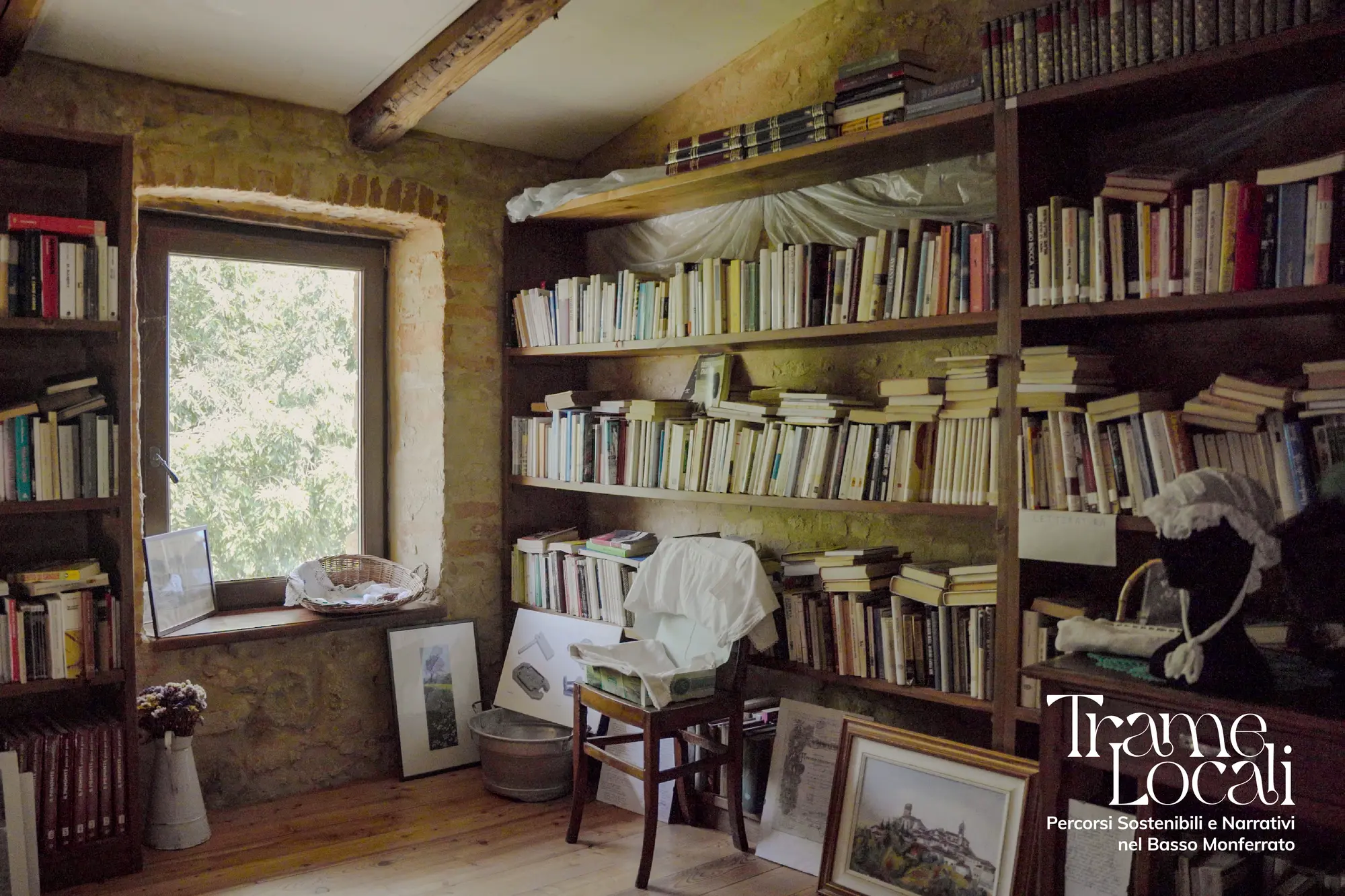Start
01/12/2024
End
30/11/2025
Status
Completed
Trame Locali: Sustainable and Narrative Paths of Basso Monferrato

Start
01/12/2024
End
30/11/2025
Status
Completed
Trame Locali: Sustainable and Narrative Paths of Basso Monferrato

TRAME LOCALI continues and expands on initiatives already launched through previous projects in the Basso Monferrato area, with the aim of supporting participatory dynamics—starting from the consolidation of a proactive network of public and private entities, communities, and associations—towards a renewed model of collaborative governance.
The project combines participatory design, anthropology, storytelling, and AI experimentation to enhance the intangible heritage and local communities of the Basso Monferrato Astigiano, with a particular focus on the municipalities of Albugnano and Cocconato. These two neighboring towns have, in recent years, initiated regeneration efforts to enhance and care for their local heritage.
The goal is to co-create a pilot itinerary through a participatory process, which can later serve as a model for ongoing collaborative management, capable of expressing the evolving identity and specificity of the local area. The itinerary connects cultural spaces and key community sites, offering alternative forms of storytelling through audiovisual materials, physical touchpoints, guided tours, and place-based theatrical performances. These formats support both autonomous and guided experiences, in synergy with local cultural events.
Through interviews, field visits, mapping activities, and participatory workshops, Trame Locali aims to collect and represent the memories, emotions, and aspirations associated with these places, thereby shaping accessible cultural routes, immersive experiences, and multimedia materials.
The itinerary was created through a participatory approach, both in its design and in the development of a collaborative tourism governance model. The active involvement of the local community ensures that multiple voices and perspectives are heard, helping to valorise the area’s intangible resources.
The project is funded through the cascade calls of the NRRP CHANGES Project – Cultural Heritage Active Innovation for Sustainable Society, SPOKE 9 - CREST Cultural Resources for Sustainable Tourism. Funded by the European Union – Next Generation EU, Mission 4, Component 1, CUP H53C22000850006.
Scientific coordination: Davide Fassi, Annalinda De Rosa, Marco Finardi, Daniela Petrelli – Politecnico di Milano
Project Management: Annalinda De Rosa, Marco Finardi, Greta Crespi – Politecnico di Milano. Stefania Toso, Paola Bottero – Ideazione S.r.l.
Development of the participatory governance model: Enrico Ferrero, Stefania Toso, Sara Ravinale, Lucia Tucci, Laura Goria – Ideazione S.r.l.
Collection and production of local stories: Anna Delfina Arcostanzo – Lo stagno di Goethe ETS
Video production: Regia: Enrico Bisi - Fotografia: Elisa Chiari e Francesca Trovato - Produzione: Base Zero
AI-enabled subjective mappings: Marco Finardi, Daniela Petrelli – Politecnico di Milano. Alessandro Ianniello, Riccardo Palomba – InTra APS
Exhibition design: Nadia Pirovano – Politecnico di Milano
Graphic design: Maria Maramotti – Politecnico di Milano
Dramaturgical and performance project: Anna Delfina Arcostanzo, Marco Gobetti – Lo stagno di Goethe ETS
Dissemination support: Circolo del Design di Torino
Digital ecosystem – App and hardware development: Suggesto S.r.l.
Public partners: Con la collaborazione del Comune di Albugnano (Asti) e del Comune di Cocconato (Asti)
Territorial network: Enoteca Regionale di Albugnano, Consorzio Albugnano 549, Associazione Turismo In Collina, Consorzio Riviera del Monferrato, Associazione Palio di Cocconato, Pro Loco di Cocconato, Pro Loco di Albugnano.
Acknowledgements: Mario Desiderio Averone, Franco Barbero, Franca Bargetto, Maria Bargetto, Roberto Bechis, Carolina Beltramo, Pino Bo, Franca Cagliero, Lucia Cane, Monica Ciravegna, Franco Corsino, Graziella Deideri, Eleonora Dezzani, Luigi Dezzani, Graziella Loner, Cecilia Loner, Anna Maria Moglia, Maurizio Pistone, Marco Sartin, Cecilia Zucca, Associazione Culturale Sentire Altrimenti.
We warmly thank all the citizens and local experts who participated in the previous project, “Human Cities / SMOTIES – Creative Works with Small and Remote Places” (2020–24), whose dedication helped shape the reflections and practices that continue through this initiative.
Research groups
POLIMI DESIS LAB
Find out more